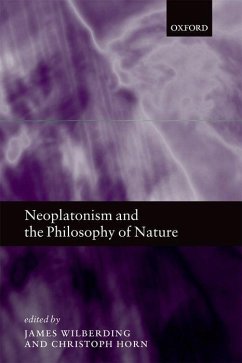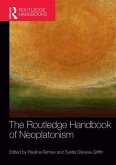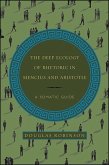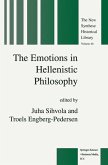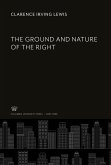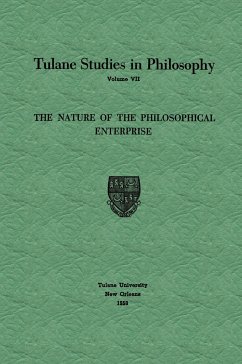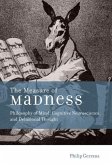Neoplatonism and the Philosophy of Nature
Herausgeber: Wilberding, James; Horn, Christoph
Neoplatonism and the Philosophy of Nature
Herausgeber: Wilberding, James; Horn, Christoph
- Gebundenes Buch
- Merkliste
- Auf die Merkliste
- Bewerten Bewerten
- Teilen
- Produkt teilen
- Produkterinnerung
- Produkterinnerung
This volume dispels the idea that Platonism was an otherworldly enterprise which neglected thestudy of the natural world. Leading scholars examine how the Platonists of late antiquity sought to understand and explain natural phenomena: their essays offer a new understanding of the metaphysics of Platonism, and its place in the history of science.
Andere Kunden interessierten sich auch für
![The Routledge Handbook of Neoplatonism The Routledge Handbook of Neoplatonism]() The Routledge Handbook of Neoplatonism352,99 €
The Routledge Handbook of Neoplatonism352,99 €![The Deep Ecology of Rhetoric in Mencius and Aristotle The Deep Ecology of Rhetoric in Mencius and Aristotle]() Douglas RobinsonThe Deep Ecology of Rhetoric in Mencius and Aristotle109,99 €
Douglas RobinsonThe Deep Ecology of Rhetoric in Mencius and Aristotle109,99 €![The Emotions in Hellenistic Philosophy The Emotions in Hellenistic Philosophy]() J. Sihvola / T. Engberg-Pedersen (Hgg.)The Emotions in Hellenistic Philosophy118,99 €
J. Sihvola / T. Engberg-Pedersen (Hgg.)The Emotions in Hellenistic Philosophy118,99 €![The Nature of Love The Nature of Love]() Dietrich von HildebrandThe Nature of Love34,99 €
Dietrich von HildebrandThe Nature of Love34,99 €![The Ground and Nature of the Right The Ground and Nature of the Right]() Clarence Irving LewisThe Ground and Nature of the Right44,00 €
Clarence Irving LewisThe Ground and Nature of the Right44,00 €![The Nature of the Philosophical Enterprise The Nature of the Philosophical Enterprise]() Edward G. BallardThe Nature of the Philosophical Enterprise39,99 €
Edward G. BallardThe Nature of the Philosophical Enterprise39,99 €![The Measure of Madness: Philosophy of Mind, Cognitive Neuroscience, and Delusional Thought The Measure of Madness: Philosophy of Mind, Cognitive Neuroscience, and Delusional Thought]() Philip GerransThe Measure of Madness: Philosophy of Mind, Cognitive Neuroscience, and Delusional Thought48,99 €
Philip GerransThe Measure of Madness: Philosophy of Mind, Cognitive Neuroscience, and Delusional Thought48,99 €-
-
-
This volume dispels the idea that Platonism was an otherworldly enterprise which neglected thestudy of the natural world. Leading scholars examine how the Platonists of late antiquity sought to understand and explain natural phenomena: their essays offer a new understanding of the metaphysics of Platonism, and its place in the history of science.
Produktdetails
- Produktdetails
- Verlag: Prairie Wind Publishing
- New
- Seitenzahl: 280
- Erscheinungstermin: Juni 2012
- Englisch
- Abmessung: 249mm x 167mm x 25mm
- Gewicht: 555g
- ISBN-13: 9780199693719
- ISBN-10: 0199693714
- Artikelnr.: 34553813
- Verlag: Prairie Wind Publishing
- New
- Seitenzahl: 280
- Erscheinungstermin: Juni 2012
- Englisch
- Abmessung: 249mm x 167mm x 25mm
- Gewicht: 555g
- ISBN-13: 9780199693719
- ISBN-10: 0199693714
- Artikelnr.: 34553813
James Wilberding is Professor in Ancient and Medieval Philosophy at the Ruhr University in Bochum, Germany. His publications include Plotinus' Cosmology (OUP, 2006), Philoponus: On the Eternity of the World Books 12-18 (Cornell and Duckworth, 2006), and Porphyry: To Gaurus on How Embryos are Ensouled and On What Is in Our Power (Cornell and Duckworth, 2011). Christoph Horn is Professor of Philosophy at the University of Bonn, Germany. He works on various aspects of ancient philosophy (Plato, Aristotle, Plotinus, Augustine) as well as modern moral and political thought. His monographs include Plotin über Sein, Zahl und Einheit (Teubner, 1995); Augustinus (Beck, 1995); Antike Lebenskunst (Beck, 1998); and Politische Philosophie (Wissenschaftliche Buchgesellschaft, 2003); and he has edited numerous volumes including Augustinus. De civitate dei (Akademie Verlag, 1997); (with Ch. Rapp) Wörterbuch der antiken Philosophie (Beck, 2002); (with A. Neschke) Politischer Aristotelismus. Die Rezeption der aristotelischen, Politik' von der Antike bis zum 19. Jahrhundert (Metzler 2008); (with J. Müller and J. Söder) Platon-Handbuch. Leben--Werk--Wirkung (Metzler, 2009); and (with G. Löhrer) Gründe und Zwecke--Texte zur aktuellen Handlungstheorie (Suhrkamp, 2010).
* 1: James Wilberding and Christoph Horn: Introduction
* Part I: The General Metaphysics of Nature
* 2: Lloyd P. Gerson: Plotinus on Logos
* 3: Andrew Smith: The Significance of 'Physics' in Porphyry: The
Problem of Body and Matter
* 4: Stephen Menn: Self-Motion and Reflection: Hermias and Proclus on
the Harmony of Plato and Aristotle on the Soul
* 5: Alain Lernould: Nature in Proclus: From Irrational Immanent
Principle to Goddess
* 6: Christia Mercer: Platonism in Early Modern Natural Philosophy: The
Case of Leibniz and Conway
* Part II: Platonic Approaches to Individual Sciences
* 7: Ian Mueller: Aristotelian Objections and Post-Aristotelian
Responses to Plato's Elemental Theory
* 8: Jan Opsomer: In Defence of Geometric Atomism: Explaining Elemental
Properties
* 9: Carlos Steel: Plato's Geography: Damascius' Interpretation of the
Phaedo Myth
* 10: James Wilberding: Neoplatonists on 'Spontaneous' Generation
* 11: Christoph Horn: Aspects of Biology in Plotinus
* Bibliography
* Index Locorum
* Subject Index
* Part I: The General Metaphysics of Nature
* 2: Lloyd P. Gerson: Plotinus on Logos
* 3: Andrew Smith: The Significance of 'Physics' in Porphyry: The
Problem of Body and Matter
* 4: Stephen Menn: Self-Motion and Reflection: Hermias and Proclus on
the Harmony of Plato and Aristotle on the Soul
* 5: Alain Lernould: Nature in Proclus: From Irrational Immanent
Principle to Goddess
* 6: Christia Mercer: Platonism in Early Modern Natural Philosophy: The
Case of Leibniz and Conway
* Part II: Platonic Approaches to Individual Sciences
* 7: Ian Mueller: Aristotelian Objections and Post-Aristotelian
Responses to Plato's Elemental Theory
* 8: Jan Opsomer: In Defence of Geometric Atomism: Explaining Elemental
Properties
* 9: Carlos Steel: Plato's Geography: Damascius' Interpretation of the
Phaedo Myth
* 10: James Wilberding: Neoplatonists on 'Spontaneous' Generation
* 11: Christoph Horn: Aspects of Biology in Plotinus
* Bibliography
* Index Locorum
* Subject Index
* 1: James Wilberding and Christoph Horn: Introduction
* Part I: The General Metaphysics of Nature
* 2: Lloyd P. Gerson: Plotinus on Logos
* 3: Andrew Smith: The Significance of 'Physics' in Porphyry: The
Problem of Body and Matter
* 4: Stephen Menn: Self-Motion and Reflection: Hermias and Proclus on
the Harmony of Plato and Aristotle on the Soul
* 5: Alain Lernould: Nature in Proclus: From Irrational Immanent
Principle to Goddess
* 6: Christia Mercer: Platonism in Early Modern Natural Philosophy: The
Case of Leibniz and Conway
* Part II: Platonic Approaches to Individual Sciences
* 7: Ian Mueller: Aristotelian Objections and Post-Aristotelian
Responses to Plato's Elemental Theory
* 8: Jan Opsomer: In Defence of Geometric Atomism: Explaining Elemental
Properties
* 9: Carlos Steel: Plato's Geography: Damascius' Interpretation of the
Phaedo Myth
* 10: James Wilberding: Neoplatonists on 'Spontaneous' Generation
* 11: Christoph Horn: Aspects of Biology in Plotinus
* Bibliography
* Index Locorum
* Subject Index
* Part I: The General Metaphysics of Nature
* 2: Lloyd P. Gerson: Plotinus on Logos
* 3: Andrew Smith: The Significance of 'Physics' in Porphyry: The
Problem of Body and Matter
* 4: Stephen Menn: Self-Motion and Reflection: Hermias and Proclus on
the Harmony of Plato and Aristotle on the Soul
* 5: Alain Lernould: Nature in Proclus: From Irrational Immanent
Principle to Goddess
* 6: Christia Mercer: Platonism in Early Modern Natural Philosophy: The
Case of Leibniz and Conway
* Part II: Platonic Approaches to Individual Sciences
* 7: Ian Mueller: Aristotelian Objections and Post-Aristotelian
Responses to Plato's Elemental Theory
* 8: Jan Opsomer: In Defence of Geometric Atomism: Explaining Elemental
Properties
* 9: Carlos Steel: Plato's Geography: Damascius' Interpretation of the
Phaedo Myth
* 10: James Wilberding: Neoplatonists on 'Spontaneous' Generation
* 11: Christoph Horn: Aspects of Biology in Plotinus
* Bibliography
* Index Locorum
* Subject Index
